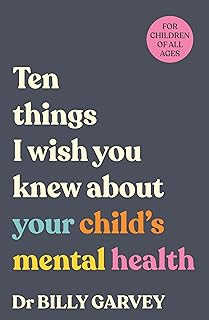World Mental Health Day is a poignant reminder of the global impact of mental health issues, with suicide being a significant concern. The World Health Organization reports that suicide claims 800,000 lives annually, affecting individuals of all ages and backgrounds. Director-General Tedros Adhanom Ghebreyesus emphasizes the importance of offering support and encouraging help-seeking behavior among those struggling with mental health challenges.
At the University of Toronto, mental health and suicide prevention have been key areas of focus. From expert advice on managing exam stress to discussions on the impact of media coverage on suicide, U of T News has been at the forefront of raising awareness and providing valuable insights. The university’s Presidential and Provostial Task Force on Student Mental Health continues its efforts to enhance mental health services across all campuses, actively seeking feedback from the community.
Dr. Andrea Levinson, U of T Health & Wellness’ psychiatrist-in-chief, sheds light on the increasing number of students seeking mental health support. Reduction in stigma surrounding mental illness has led to a greater willingness among students to seek help, marking a positive shift in attitudes towards mental health issues.
During exam periods, stress levels can soar among post-secondary students. U of T News compiled nine practical tips from experts to help students navigate the pressures of exams, emphasizing the importance of self-care, positive thinking, and celebrating small victories along the way.
Members of the Presidential and Provostial Task Force, including students like Aurora Nowicki and Egag Egag, shared their personal experiences with mental health challenges and highlighted the need for improved support systems on campus. Their insights underscore the importance of empathy and understanding in addressing mental health issues among students.
Dr. Mark Sinyor and Dr. Ayal Schaffer, experts in psychiatry at U of T, have been instrumental in developing guidelines for responsible reporting on suicide in the media. By emphasizing the impact of language and storytelling on mental health outcomes, they advocate for a more nuanced and sensitive approach to discussing suicide in public discourse.
Assistant Professor Emily Nalder’s research on resiliency in mental health explores strategies to help university students cope with daily challenges. By empowering students to navigate difficulties effectively, Nalder aims to bolster their mental health and well-being, recognizing the pivotal role of academic identity in shaping mental health outcomes.
For those in distress, immediate support services are available, including crisis helplines and counseling resources. The university’s commitment to promoting mental health and well-being underscores the importance of community support and access to professional assistance for those in need.
As the conversation around mental health continues to evolve, initiatives like the Presidential and Provostial Task Force and ongoing research efforts at U of T play a crucial role in fostering a supportive and inclusive environment for students and faculty alike. By prioritizing mental health promotion and suicide prevention, the university remains dedicated to enhancing the well-being of its community members.
📰 Related Articles
- College Students Drive Mental Health Engagement on University Websites
- American University Field Hockey Hosts Towson in Mental Health Game
- ANU’s Vision 2030: Prioritizing Mental Health and Wellbeing Initiatives
- Youth Report Urges Action on Mental Health and Education
- World Bank’s Impactful Investments in Menstrual Health Empower Women






